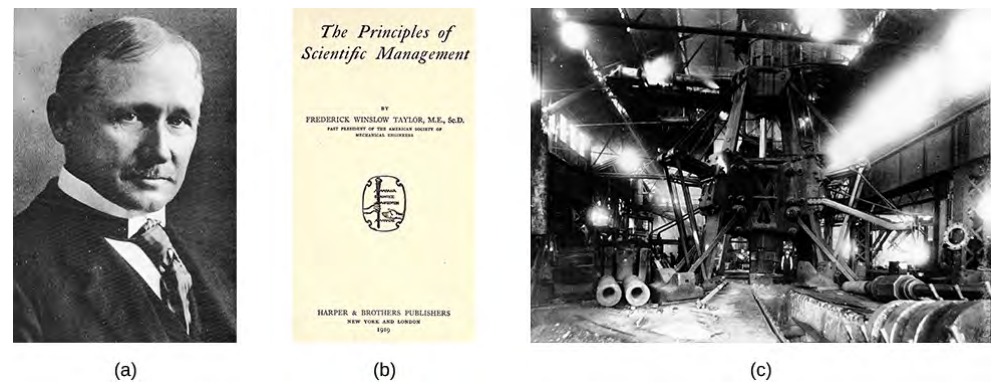Industrial-organizational psychology is the branch of psychology that deals with the understanding of human behavior in the workplace, and how to deal with problems in the workplace.
Industrial-organizational psychologists study a wide range of topics, such as:
- How to improve work performance and work satisfaction
- How to increase efficiency in the workplace
- How to reduce turnover rates
- How to motivate employees
- What makes people happy at work
You could think of industrial/organizational psychology as having two sides. On one hand, there is the industrial side, which involves matching employees to their best possible job roles. This segment of I-O psychology is also sometimes referred to as occupational careers counseling and can comprise 15% of a psychologist’s workload.
People who work in human resources might assess an employee’s characteristics and then match that person to a job in which they are likely to perform well. Other functions of I-O psychologists include developing job performance standards, training employees and measuring their performance.
Six Key Subject Areas in Industrial-Organizational Psychology?
Industrial-organizational psychology is a field of applied psychology that applies psychological principles to the workplace. According to Muchinsky, The six key subject areas in industrial-organizational psychology are:
Industrial-organizational psychologists are highly qualified scientists and experts in the field of psychology. They can work in a variety of settings including hospitals, industrial settings, or schools.
- Employee selection: This area also involves recruiting. It starts with creating job specs and defining the skill set needed to ensure your company has the right employees in place. As a result of this job assessment, you can make use of pre-employment tests to evaluate if prospective employees match your needs.
- Ergonomics: Ergonomics is essential for any profession as it helps you to create procedures and equipment with the objective of achieving better performances and minimizing injuries.
- Organizational development: Those who work in I-O psychology find themselves helping organisations in many different stakeholders, such as increasing profits, redesigning products & improving an organisational structure.
- Performance management: Industrial-organizational psychologists who work in this area develop assessments to identify if employees are doing their job well. They examine different job tasks to see how well the employees are performing each one, as well as how they interact with other employees.
- Training and development: Professionals in this area have to decide what skills are needed to perform a job, and create and evaluate training programs.
- Work-life: The I-O psychology discipline is focused on improving employee happiness and ensuring that you get the most out of your workforce. This might involve making jobs more rewarding or designing programs that help employees have an improved quality of life.
Industrial-Organizational Psychology Topics
Here are some of the topics that experts in industrial-organizational psychology address:
- Employee motivation: Professionals in this field may also use psychology to help keep workers motivated. It can be a powerful tool.
- Employee testing: I-O psychologists use insights from the psychology of the job seeker to determine if a prospective candidate is best suited for a given job. They use tests and other psychometric instruments to assess their skills, knowledge, and personality traits.
- Leadership: As an I-O psychologist, my role is to help leaders develop & improve the strategies embedded in their business practices. In particular, I train managers in different leadership skills so they can better manage team members.
- Product design: I-O psychologists are heavily involved with the development of many workplace or consumer products.
- Workplace diversity: As an organizational psychologist I can help a company with equal opportunities in the workforce. My services include designing hiring practices to promote diversity and inclusion, educating employees on the benefits of diversity and help them understand their differences.
- Workplace performance: Researchers in I-O psychology often spend time at work investigating how to design a better working environment for employees that will maximize performance.
Important People in IO Psychology History
There have been several prominent figures in the field of IO Psychology, including:
Frederick W. Taylor: Frederick Taylor was an inventor who believed that it was possible to improve the efficiency of factories by controlling working environments through concepts such as time and motion studies. In 1911, he put forward his ideas in a book titled ‘The Principles of Scientific Management’. His book explores management styles, employee selection, training and work itself. It uses time & motion studies to help provide insight into some of the most difficult areas.

Hugo Münsterberg: Max Münsterberg’s early text inspired the use of psychology in the workplace and can be seen as a foundation for modern day research. He had a crucial impact on developing this field.
James McKeen Cattell: One of the earliest psychologists to explore the connection between human differences and behavior, Cattell’s work helped create a more manageable understanding of human individuality.
Kurt Lewin: K. Lewin was one of the most influential psychologists when it came to leadership styles. His work focused on many different aspects that enable a situation or phenomena, rather than just looking at the behavior of individual people.
Robert Yerkes: Yerkes was a psychologist who developed the Alpha and Beta Intelligence Tests for the US Army. These tests were used extensively during WWI to evaluate military recruits. The scores on these tests are used to determine a person’s capabilities, including their ability to serve and leadership potential.
Job and career opportunities in industrial-organizational psychology
Interest in industrial-organizational psychology careers has grown exponentially as more companies are demanding workers with these skills to stay competitive.
Industrial-organizational psychology is a niche field that has been growing in the past few years. It is a career that requires many skill sets and is suitable for people who are interested in understanding human behavior.
It’s not just about understanding the behavior of an individual, but also about understanding how to make better workplaces and organizations.
There are many job opportunities for industrial-organizational psychologists, from research positions to management positions or even teaching positions at universities.
It’s no surprise that the U.S. Bureau of Labor Statistics predicts I-O psychology will be a fast-growing career given the increasing demand in the field and sky-high wages.
The Bureau of Labor Statistics reports that the average salary for I-O psychologists was $109,030. The bottom 10% earned an average of $51,350 while the top 10% received an annual salary averaging to close to $184,380.
Per the U.S. Department of Labor, industrial-organizational psychologists are afforded a wide range of available salaries. For example, average annual wages in different industries is as follows:
- Management, Scientific, and Technical Consulting Services: $95,470
- Colleges, Universities, and Professional School: $70,3602
- Scientific Research and Development Services: $149,780
- State Government: $66,600
Scope of industrial psychology
Industrial psychologists have a lot of opportunities for career growth because there is an increasing need for them in various industries such as healthcare, government agencies and education. They can also specialize in areas like organizational development or ergonomics while they continue to apply their skills to various fields.
Industrial psychology is the application of psychological principles to optimize human productivity and well-being in the workplace.
And Industrial psychologists are interested in improving organizational performance and personal well-being, as well as increasing job satisfaction.
Industrial psychologists focus on three areas:
1. Employee selection, evaluation, and retention
2. Job design
3. Job training
Who Should Study Industrial-Organizational Psychology?
Industrial-Organizational Psychology is a field of psychology that deals with the workplace. It has a lot to offer in terms of career opportunities, and it is a field that is constantly growing.
Students who are passionate about the application of psychological principles should consider industrial-organizational psychology. Having an interest in psychology and related subjects like product design, engineering, computer sciences or statistics may be your best bet if you’re looking for a satisfying career.




